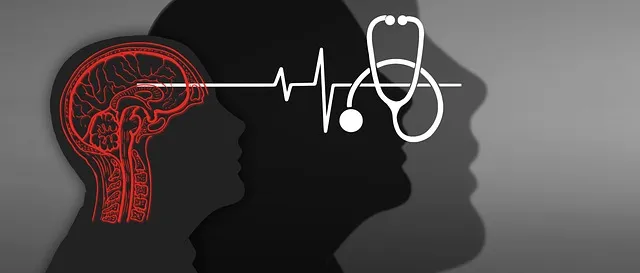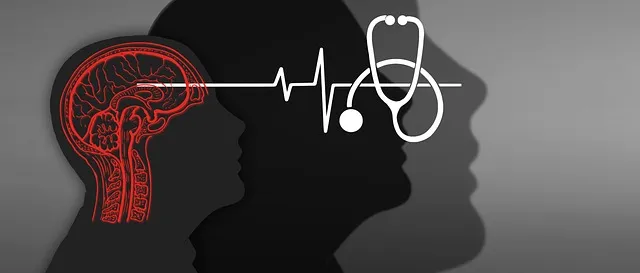The Northglenn Kaiser Permanente Mental Health Access Center emphasizes the media's significant impact on public perception of mental illness, advocating for accurate and empathetic portrayals. They combat negative stereotypes through holistic care, tailored services, and community engagement, fostering open conversations about mental wellness. To enhance media representation, they suggest a collaborative approach involving healthcare providers, mental health experts, and individuals living with conditions, coupled with mental wellness coaching programs. This strategy aims to reduce stigma, encourage help-seeking behaviors, and inspire individuals to prioritize their mental well-being globally.
Mental illness representation in media significantly influences public perception, often perpetuating stereotypes or, conversely, fostering understanding. This article delves into this complex issue, offering solutions inspired by innovative initiatives like the Northglenn Kaiser Permanente Mental Health Access Center. We explore successful strategies to enhance accurate and compassionate mental health portrayal in media, drawing insights from real-world examples, with a focus on the transformative power of responsible representation.
- Understanding the Impact of Media Portrayal on Mental Health Perception
- The Northglenn Kaiser Permanente Mental Health Access Center: A Model for Positive Change
- Strategies to Enhance Accurate and Compassionate Mental Illness Representation in Media
Understanding the Impact of Media Portrayal on Mental Health Perception

The media’s portrayal of mental illness can significantly shape public perceptions and understanding of various psychological conditions. This is particularly significant in communities like Northglenn where access to mental health services, such as those offered at the Kaiser Permanente Mental Health Access Center, is crucial. When media presents mental health issues accurately and with sensitivity, it can reduce stigma, promote empathy, and encourage individuals struggling with their mental well-being to seek help. On the other hand, negative or stereotypical depictions can lead to further marginalization and hinder people from openly discussing their experiences.
A balanced and informed representation in media can serve as a powerful tool for raising awareness about mental health challenges. By showcasing stories of resilience, recovery, and effective treatments, media can offer hope and inspire individuals to manage their anxiety relief, emotional regulation, and stress management. This shift in narrative is essential in fostering an environment where people feel supported and encouraged to prioritize their mental well-being.
The Northglenn Kaiser Permanente Mental Health Access Center: A Model for Positive Change

The Northglenn Kaiser Permanente Mental Health Access Center stands as a beacon of hope and positive change in addressing mental illness representation in media and society at large. This innovative center offers a holistic approach to mental health care, integrating clinical services with community engagement strategies. By providing a safe and inclusive space, it encourages open conversations about mental wellness, challenging stigmatized narratives prevalent in the media.
Focusing on both individual support and systemic change, the center delivers comprehensive Trauma Support Services tailored to diverse populations. Through programs that promote Positive Thinking and advocate for Mental Health Policy Analysis and Advocacy, they empower individuals to navigate their mental health journeys with resilience and dignity. The Northglenn Kaiser Permanente Mental Health Access Center serves as a model for communities worldwide, demonstrating that accessible, compassionate care can foster a culture of mental well-being.
Strategies to Enhance Accurate and Compassionate Mental Illness Representation in Media

To enhance accurate and compassionate mental illness representation in media, several strategies can be employed. Firstly, Northglenn Kaiser Permanente mental health access center and other healthcare providers should collaborate with mental health experts to ensure the authenticity of portrayals. This includes consulting with individuals living with mental illnesses, therapists, and researchers to offer insights into the nuances of various conditions. By integrating these perspectives, media creators can move away from stereotypical and simplistic representations.
Secondly, mental wellness coaching programs development should be encouraged as a means to foster more nuanced storytelling. These programs, designed by healthcare providers with cultural competency training, can equip writers and producers with the knowledge to depict emotional healing processes authentically. Additionally, promoting mental health awareness through emotional healing processes discussed in media can reduce stigma and encourage viewers to seek support if needed. This collaborative approach ensures that mental illness is represented with both accuracy and empathy.
In conclusion, the way mental illness is portrayed in media significantly influences public perception and access to care. The Northglenn Kaiser Permanente Mental Health Access Center serves as a beacon of positive change, demonstrating that comprehensive services and accurate representation can improve mental health outcomes. By implementing strategies to enhance accurate and compassionate mental illness representation in media, we can foster a more understanding and supportive society for those facing these challenges.





